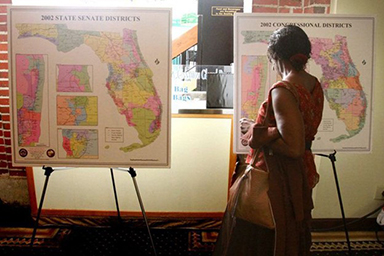
Written By Jasmine Burney-Clark
(Source NewsOne):
When I was growing up, I would read about the struggle for civil rights and lament that my coming of age was in the 1980s and 90s, rather than in the 50s and 60s. My lingering question was whether I would have had the courage of the freedom fighters of that era. I wondered what I would have done to influence change.
While I was not a part of heroic fights for justice decades ago, I am clear that even today, there is work for my hands to do. The fight for justice is perpetual, meaning no generation will have the luxury of abstaining from civil rights. For instance, even today, in the 21st century, there are things we can all do to further democracy. One of the most important things we can do is to maintain hope that progress is possible. Maintaining hope in the face of incessant attacks on voting rights is not easy. But there is no alternative.
The threat to voting rights may be different than what it was 40 or 50 years ago, but struggles remain. This came fully into focus with the failure of the John Lewis Voting Rights Act and the Freedom to Vote Act. The vulnerability of our democracy was on full display with the Jan. 6 attempted coup at the U.S. Capitol last year. But we’ve long noticed assaults on democracy given the 19 states that have introduced 34 laws to restrict voting in 2021 alone. The need to protect the franchise has also been crystallized with the redistricting process, which has at turns seen lawsuits on gerrymandered and racially discriminatory maps and state proceedings devoid of public involvement.
In my own state of Florida, a sitting governor – one who is both up for reelection and rumored to be a 2024 presidential contender – submitted his own congressional map. Gov. Ron DeSantis tendered his plan on the eve of the federal Martin Luther King Jr. holiday. Even for someone who has governed with a strong arm, threatening school districts and employers that instituted mask and vaccine mandates, the move was unusual. There are now maps drawn by the Senate, the House and a sitting governor. This questionable power play should be challenged and reigned in.
Governors typically do not insert themselves into redistricting. In addition to being bad form, DeSantis’ plan would enshrine Republicans’ stronghold on the state and adversely limit the number of congressional seats traditionally held by African Americans.
Senate Republicans’ maps cut Hispanic representation, and DeSantis’ map eliminates two congressional seats held by Black leaders. DeSantis’ map would cut the number of African American districts from four to two, while boosting the number of seats Donald Trump would have won in 2020 to 18 from the 16. It would also wipe out the 5th Congressional District seat held by African American Rep. Al Lawson. His north Florida district includes the heavily Black Jacksonville urban core that was represented by African American Democrat Corrine Brown since the early 1980s.
Redistricting is one of the most pivotal processes available to determine who represents us. But communities can only participate if redistricting is open and inclusive; when legislatures draw lines that are discriminatory or gerrymandered, the will of voters is subverted and diminished.
We need fair maps to enable voters to have a true shot at deciding who represents them. Unfortunately, the governor has inserted himself in redistricting to engineer an outcome that he deems appropriate. Voters should have an equal voice and vote.
Against this backdrop, it is easy to understand why some may feel that the right to vote is under siege. I agree that these are uncertain times. But we must commit ourselves to continue the valiant fight our ancestors began decades ago. When it comes to the freedom journey, there is no demarcation line. There are pivotal struggles, but the broader battle will endure from one generation to another. Our job then is to ready ourselves to call out injustice wherever we see it. We must challenge injustice with our feet (in protests movements) and with our minds (in the courts) and maintain a firm belief that progress is possible.
This is my life’s work. I may not have lived in the era of the greats, but there is still work for me to do. There is work for you as well. The key is to never surrender hope. It was our ancestors’ lifeline, and it is ours as well.
Jasmine Burney-Clark is the founder of Equal Ground Education Fund and Action Fund, a Black-led community-centered civic engagement organization prioritizing voter registration, education and turnout.


Be the first to comment